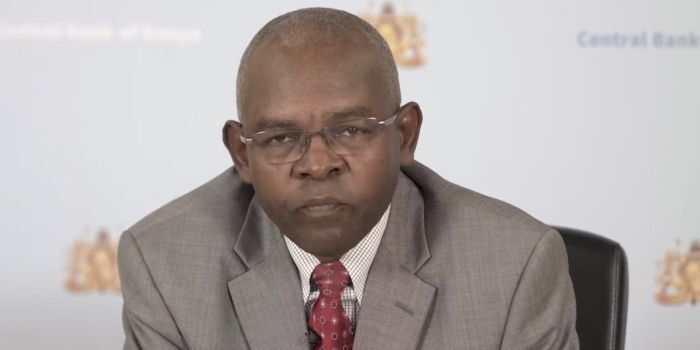The Central Bank of Kenya (CBK) has confirmed that it anticipates bank mergers following the Parliamentary approval of a new law requiring commercial banks to have a minimum core capital of sh10 billion, up from the current sh1 billion.
This change, outlined in the Business Laws (Amendment) Bill, 2024, was proposed by the CBK and passed by Members of Parliament on Wednesday night.
The bill now awaits President William Ruto’s signature to become law.
During a press briefing following the Monetary Policy Committee meeting on Friday, CBK Governor Kamau dismissed concerns from Kenyans about potential bank collapses due to the new law.
“We do hope there will be mergers.
With stronger banks and a more robust capital base, we will be able to withstand many of the new challenges facing the financial sector,” he said.
Bank mergers occur when two banks combine to form a single entity, either by creating a new parent company or one bank absorbing another.
The governor believes that such mergers will help increase the core capital of banks, enhancing their ability to absorb financial shocks.
While this remains a projection, if realized, it could lead to changes such as new account numbers, updated debit/credit cards, and revamped banking platforms.
However, customers may also benefit from an expanded range of services and a larger network of branches and ATMs.
In some cases, customers may see minimal changes, aside from rebranding.
Public participation in the legislative process revealed concerns that up to 24 banks could be forced out of business if the new capital requirements become law.
The Kenya Bankers Association (KBA) warned the National Assembly’s Finance and National Planning Committee, led by Molo MP Kuria Kimani, that the move could affect over 7,000 employees.
Despite these concerns, Governor Kamau defended the proposal, stating that it would strengthen local banks’ capital buffers and reinforce the financial sector.
He also argued that the increase in the capital ceiling would make Kenyan banks more competitive in the region.
Parliament amended the law to extend the compliance period from three years to eight years.
The new schedule includes a phased approach, starting with a core capital of sh1 billion by December 31 and increasing to sh10 billion by December 31, 2027.
The Finance Committee, in its report to Parliament, noted that despite significant growth in assets, liabilities, and the number of depositors and borrowers, the minimum core capital for banks had remained stagnant at sh1 billion.
Kuria Kimani emphasized that the current low capital base, despite the sector’s substantial asset base, leaves banks more vulnerable to failure.
Tanzanian MPs Injured In Bus Accident On Way to EAC Sports Games In Mombasa
